#john c. g. röhl
Explore tagged Tumblr posts
Text
youtube
die geheimnisse des kaisers, john c. g. röhl, simon campbell-jones 1987
#die geheimnisse des kaisers#john c. g. röhl#simon campbell-jones#documentary#wdr#1987#friedrich wilhelm viktor albert von preußen#wilhelm II.#german emperor#princess hermine reuss of greiz#doorn#greiz
0 notes
Photo
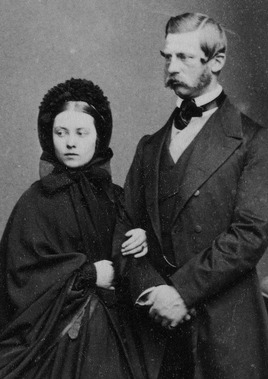
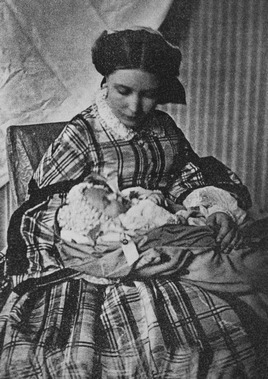
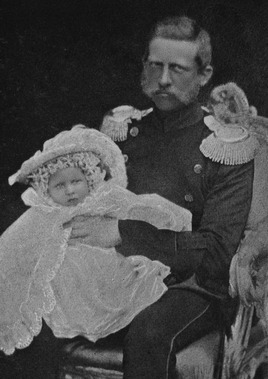

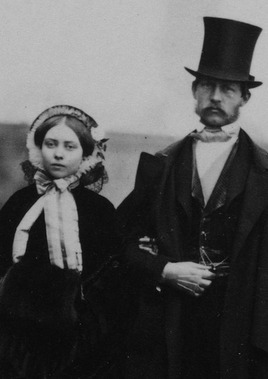
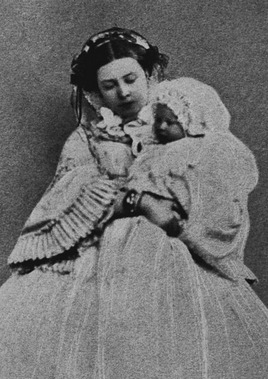
27 January 1859 | Birth of Kaiser Wilhelm II
The husband of the young mother provides us with a poignant portrayal of her intense suffering. After Martin had examined the Princess, Fritz asked him for a full and frank account of what could be expected. Martin explained that while Vicky’s life was not in danger, that of her child was. Fritz thereupon instructed the doctors ‘only to think of the mother, but was informed that it was medical practice to try save both mother and child’. The Prince nevertheless prepared himself ‘to witness the birth of a stillborn child’. He vividly describes the pitiful condition of the mother, who was unware of how dangerous the situation was for her baby:
Vicky’s pain, as well as her horrible screams and wails, became ever more severe; however, whenever she was granted a respite from her suffering, she would ask for forgiveness from everyone for her screaming and impatience, but she could not help herself. When the final stage of labour began, I had to try with all my might to hold her head in place, so that she would not strain her neck over much. Every contraction meant a real fight between her and me, and even today [29 January] my arms still feel quite weak. To prevent her from gnashing & bitting, we made sure there was a handkerchief in her mouth at all times. Occasionally I had to use all my strengh to remove her fingers from her mouth, & also place my own fingers in her mouth. With the strength of a giant, she was at times able to hold off 2 people, & thus the awful torture escalated until the moment of birth was so near that complete anaesthesia with chloroform was undertaken... Vicky was laid at right angles on the bed; she let forth one horrible, long scream, & was then anaesthetised.’
Fritz describes how, upon hearing not a cry from the newborn, he sank ‘in a half-faint’ onto the bed next to Vicky, whom he had been holding in his arms during the entire ordeal. Martin’s tone of voice as he uttered the words ‘It’s a prince’ seemed to confirm the father’s worst fears, and Fritz thought that what the doctor meant was: ‘such a shame - a boy on top of everything else’, until suddenly heard the child crying in the next room. ‘The sound cut through me like an electric shock; Martin said I should go in, Countess Perponcher took Vicky in her arms, & I staggered, in a half-faint, into the next room where the baby was in the bath, & first I fell into Mama’s arms, & then I sank to my knees. The baby cried again when he was given a further number of slaps, and everything seemed to indicate that all was well, indeed, wonderful, & I was assured that he would live!’
Young Wilhelm: The Kaiser’s Early Life by John C. G. Röhl.
#kaiser frederick iii#empress victoria#victoria princess royal#prussia#kaiser wilhelm ii#vicky was barely eighteen#when she went through this birth trauma#thank god she had fritz#*whatta man* starts playing#what a man what a man what a man#what a mighty good man
168 notes
·
View notes
Photo

I’ve been getting a ton of reading accomplished throughout the pandemic, so I think I’m feeling cocky enough to finally attempt to conquer John C. G. Röhl’s three-volume biography of Kaiser Wilhelm II. To give you an idea of the task before me, the book on the right is the 1,438-page Bartlett’s Familiar Quotations.
If you never hear from me again, you might want to have a welfare check done to make sure I wasn’t crushed by the weight of one of the volumes. No matter what, it’s undoubtedly the Kaiser’s fault.
29 notes
·
View notes
Text
Prince Albert and his first grandson Prince Wilhelm of Prussia (future Kaiser Wilhelm II).

At the end of September 1860, Wilhelm was finally presented to his grandparents from England, who were delighted with him and sent proud letter to all their relatives. Wilhem was such a 'fine, darling Child - very fat & fair - very intelligent' , wrote Queen Victoria to her own mother. In a letter to King Leopold, she reported that her grandson was 'a darling, pretty, clever Child'.
And the Queen's words to the Duchess of Sutherland were: "Our little grandson is a lovely fat Boy & so intelligent & friendly - not in the least shy ... who delighted every one, by his happy merry, clever little face. In particular being tossed into the air by his grandfather made a great impression on Wilhelm, and even several weeks later, Vicky reported: "William says " see saw" when he sees dear Papa's Picture and amuses himself by swinging his doll on a pocket handkerchief and singing "see saw" - as when Papa swung him - he is really a sharp little fellow for his age - if only that unfortunate arm were not so I should be so proud of him.
Source: Young Wilhelm: The Kaiser's Early Life, 1859-1888 by John C. G. Röhl.
Image: Royal Collection.
#prince albert of saxe-coburg and gotha#prince consort#albert prince consort#prince wilhelm of prussia#kaiser wilhelm ii#german royal#german royalty#british royalty#british royal#british royal fandom#british royal family#1860
64 notes
·
View notes
Text





Princess Charlotte of Prussia was the second child and eldest daughter of Crown Prince Friedrich of Prussia and Victoria,Princess Royal of the United Kingdom.
📌 Maternal first cousin of Empress Alexandra Feodorovna of Russia.
The majority of historians hold that Charlotte and her daughter Feodora were afflicted with porphyria, a genetic disease that is believed to have affected some members of the British Royal Family, most notably King George III and Mary,Queen of Scots.In their 1998 book Purple Secret: Genes, 'Madness', and the Royal Houses of Europe, the historian John C. G. Röhl and the geneticists Martin Warren and David Hunt identify Charlotte as "occupy a crucial position in [the] search for the porphyria mutation in the descendants of the Hanoverians".
For evidence, Röhl reviewed letters between Charlotte and her doctor, as well as correspondence with her parents, that had been sent over a 25-year period; he found that even as a little girl, Charlotte had suffered from hyperactivity and indigestion. As a young woman, Charlotte became gravely ill with what her mother called "malaria poisoning and anaemia" followed by "neuralgia, fainting and nausea", all described by Röhl as a "textbook list of the symptoms of porphyria, and this several decades before the disorder was clinically identified".Röhl also notes further symptoms described in letters between Charlotte and her physician Ernst Schweninger, who treated her for over two decades beginning in the early 1890s;[74] in them, Charlotte variously complains of "toothache, backache, insomnia, dizzy spells, nausea, constipation, excruciating 'wandering' abdominal pains, skin oedema and itching, partial paralysis of the legs and dark red or orange urine", the last of which Röhl calls the "decisive diagnostic symptom".
In the 1990s, a team led by Röhl exhumed Charlotte's and Feodora's graves and took samples of each princess for testing. In both mother and daughter, the researchers found evidence of a mutation related to porphyria; while the team notes they could not be "completely certain" that this mutation was caused by the genetic disease, they believe it "beyond dispute" based on the historical and biological evidence. They add that many of the same symptoms were found in Charlotte's mother Vicky, as well as other family members including Queen Victoria. Röhl, Warren, and Hunt conclude "...for what else could have caused their terrible attacks of lameness and abdominal pain and skin rashes– and in Charlotte's case dark red urine?"
1 note
·
View note
Text
Rules: tag 10 people you would like to get to know better.
I was tagged by @the-golden-paw :)
favorite place: Sirdalen (and other mountainous places) and Vienna relationship status: In a long distance relationship favorite color: Wine red pets: Two cats and a pon! last song I listened to: We Are Number One, but it’s an electro swing remix favorite TV show: Anno, Father Ted, and Allo, Allo!
first fandom: Hetalia hobbies: Uh, I’m not sure this would be the appropriate place to list cavalry history, because it’s become more of a lifestyle. I ride dressage, play the piano, pet cats, and watch movies mostly. books that I’m currently reading: Kaiser Wilhelm II by John C. G Röhl, and Cavalry In Future Wars by Friedrich von Bernhardi favorite book: I can’t choose: The Golden Compass by Philip Pullman, Hestenes Klan by Live Bonnevie, The Great Gatsby by F. Scott Fitzgerald, Commando - Of Horses And Men by Deneys Reitz, The Alchemist by Paulo Coelho, Frederick The Great by Nancy Mitford, Redcoat by Bernard Cornwell, Queen Victoria’s Little Wars by Byron Farwell, The reluctant Empress by Brigitte Hamann Oh dear...I have a few of those! I could probably list some more too :P worst thing you’ve ever eaten/tasted: Ice cream sprinkled with orange peel! That’s an episode I’d rather not recall again.
tagging: @theswisscheese, @victoriansword, @ritasv, @takingaspadetoasouffle, @sildesalaten, @thecynicalgenius, @wilfredowens
6 notes
·
View notes
Photo
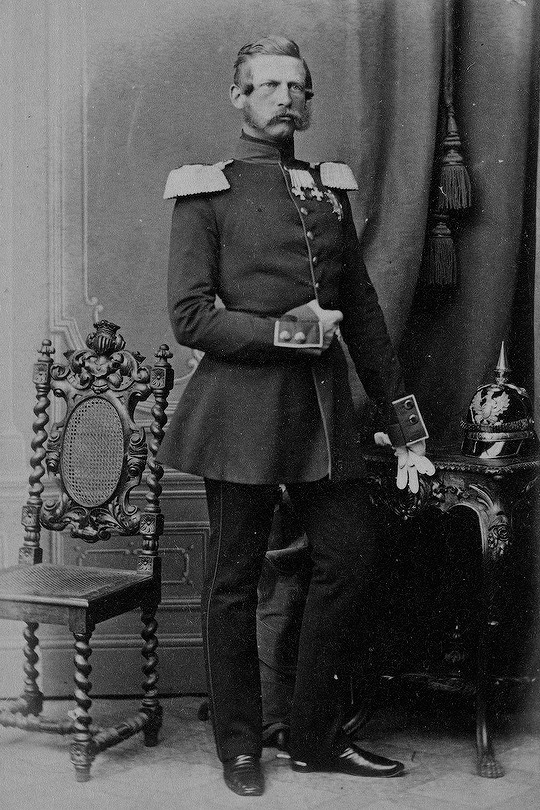

In early 1862, rumours began circulating in Germany alluding to scenes of jealousy between the Crown Princess and her handsome husband over a lady at court with whom he had supposedly fallen in love. Soon the word was that Vicky was leaving for England in order to sue for divorce. Even during her stay on the Isle of Wight, she was pursued by such rumours from all corners of Germany. In desperation, she wrote to her husband: ‘These stories about our ménage have become so widespread in the provinces, & indeed throughout all of Germany, that Stockmar has received letters from numerous acquaintances asking him if they are indeed true.’
Both husband and wife were furious at this distortion of the truth, and immediately attributed the rumours to machinations of the arch-conservative Kreuzzeitung party. ‘No words can describe such nonsense’, exclaimed the Crown Prince. The entire matter was nothing more than ‘further evidence that one does not wish a royal marriage to enjoy bürgerlich [middle-class] simplicity and happiness’, he wrote, adding bitterly: ‘Our friends the Junkers are no doubt behind this tale.’
‘It is simply too malicious’, averred the Crown Princess. ‘Just because we are so happy & so in love with each other, they begrudge us the opportunity to be different from so many others! But you can be sure it is all the fault of our dear loyal zeitungspartei. The Democrats would not be capable of such a thing, & besides would have nothing to gain from it!’ These were in fact the first warning shots in a slander campaign which later developed into a veritable system under Bismarck.
Over the next years, neither her passion nor her love and admiration for her husband waned. At the beginning of 1861, after being married for three years, Vicky wrote to her mother: ‘Not a hope has been disappointed, not and expectation that has not been realized.’ Day after day, she wrote, she found herself admiring anew her husband’s noble qualities, his level-headedness and sens of duty. ‘He is such a good son, such a good husband, and such a good brother!’
Young Wilhelm: The Kaiser’s Early Life by John C. G. Röhl
#kaiser frederick iii#empress victoria#victoria princess royal#england#prussia#*handsome husband*#john i see you
114 notes
·
View notes
Note
Hi! What was the Kotze Affair? All I can find on it is that it was letters (which may have actually been diary entries from Charlotte of Prussia's diary??) that exposed the German court of 'sexual debauchery'. I haven't been able to find really any info on it. Is there anywhere I could read the letters?
Hey! The Kotze Affair began in 1892. Members of the Hohenzollern family and several prominent figures of the German Court started receiving anonymous letters containing obscene accusations. Until 1894, more or less 200 letters were sent. The rivalries at Court were exacerbated by these letters which were most likely written by someone close to the recipients since the details were so accurate & it created a climate of suspicion.
Leberetch von Kotze, master of ceremonies at Court, was getting closer to the inner circle of Wilhelm II, which made many at Court jealous. Even though he had received some letters, he was accused of being the author. The authorities with the Baron Schrader (who didn’t like Kotze at all) found some so-called evidences and Kotze was put in jail. However, the letters didn’t stop. An expert was called to analyse the handwriting and he concluded that Kotze wasn’t the author and that the latter could be a woman. Kotze was set free but the intrigues at Court were still in full swing. Kotze’s clan blamed Schrader for fabricating evidences. Later, the two men fought in a duel and Schrader died from his wound.
At that time, Ernst Gunther, Duke of Schleswig-Holstein, brother-in-law of Wilhelm II, was also mentionned as being the real author behind the letters. He was forbidden to live in Berlin and Postdam which give credence to the accusations. For Fritz Friedmann, who worked on the case and wrote a book on the affair in 1896, the author was a woman. He doesn’t blame Charlotte but it’s true that some contemporaries thought she was the one behind the letters. Mainly because of her ill reputation. And even though Charlotte was quite a piece of work, I’m not sure she was the master mind behind the letters. + she was one of the recipients of these letters.
Concerning Charlotte diary, newspapers reported (even French press, it shows the extent of the scandal) that she had lost it and the diary had ended up in the wrong hands. Some said it was Kotze and his wife who had stolen the diary while on a travel with Charlotte and her husband. Let’s say that there were a lot of rumours…
Historians can’t seem to agree on the author and it’s true that not a lot of materials have been written on this affair, at least in English. Maybe I’m wrong, it’s been a long time since I read it, but Christina Croft doesn’t mention the affair in her book Queen Victoria’s Granddaughters: 1860-1918. Hannah Pakula in her bio on Vicky talks about it but doesn’t mention Charlotte. Whereas Wolfgang Wippermann (who has published a book with the letters if you read German!) thinks Charlotte is behind them. And for John C. G. Röhl it is most likely Ernst Gunther. I recommend you the books from Röhl there are great. In The Kaiser’s Personal Monarchy, 1888-1900, he talks about the affair. And I don’t know if you read French or not but here is the book online of Fritz Friedmann (should be taken with a grain of salt) : https://gallica.bnf.fr/ark:/12148/bpt6k371707c
21 notes
·
View notes
Quote
The ‘Willy-Nicky correspondence’ reached a new intensity in 1902. From then on, Wilhelm II openly pursued the goal of entangling the tsar in a war with Japan, by assuring him of German backing. If this succeeded, he calculated, Russia would be tied up in the Far East for a long time, France would therefore be isolated and Germany’s pre-eminence over the entire Eurasian continent would be as good as assured.
John C. G. Röhl
#Wilhelm was wild to the core!#if you ever wondered where disney get their inspiration for ridiculously ambitious super-villains#wilhelm ii#german history#russian history#europe#asia#1900s#military history
4 notes
·
View notes